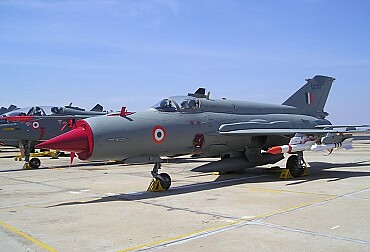Future Combat Air System Falling Apart? France May Go It Alone on Next-Gen Jet
France is preparing to make a critical decision on the Future Combat Air System (FCAS), an ambitious European fighter jet project. With discussions between Germany and Spain at a standstill, France is considering pursuing the venture independently. This development raises questions about the future of European industrial collaboration in defense, as well as France’s ability to execute the project alone.
The FCAS is envisioned as a comprehensive combat system, integrating a next-generation European fighter jet with fleets of drones controlled via a defense cloud. The goal is to reduce dependence on the United States and replace aging European aircraft, according to media reports. Estimated to cost at least €100 billion, the project is slated for completion by 2040. Launched in 2017, it is now set to enter its second phase of development. However, progress has stalled. The companies involved—France’s Dassault Aviation, Airbus (representing German interests), and Indra (representing Spanish interests)—are in conflict. Disputes and delays have long plagued the project, and negotiations have now reached an impasse.
France asserts that it has the capability to develop a fighter jet independently. A French official stated, “France knows how to build a fighter jet on its own,” reflecting confidence in its technical expertise. Dassault Aviation, a key player, is prepared to assume industrial leadership, leveraging its expertise and European network. France’s robust aeronautics industry and established skills provide a solid foundation for this ambition. Its well-developed European partnerships further bolster confidence in pursuing the FCAS autonomously, even without immediate collaboration.
Discussions among France, Germany, and Spain center on two key issues: program governance and equitable distribution of work among manufacturers. Dassault Aviation leads operations for France, while Airbus represents German and Spanish interests. Tensions over task allocation have led to an unsatisfactory situation. German Chancellor Friedrich Merz remarked, “We share the same view: the current situation is unacceptable. We are not making progress on this project.” Nonetheless, the parties aim to resolve the issues by the end of 2025. The next major milestone, Phase 2 of the FCAS program, is scheduled for 2026.
This phase includes building a demonstrator, requiring an estimated €5 billion investment. The project’s total cost is projected to reach at least €100 billion, with a target launch before 2040. These figures underscore the significant financial challenge for the European nations involved. A French decision to proceed independently could reshape the project’s trajectory.
The FCAS is not developing in isolation. It competes with the Global Combat Air Programme, a rival initiative led by BAE Systems (United Kingdom), Leonardo (Italy), and Mitsubishi Heavy Industries (Japan), aiming to deliver an advanced fighter jet by 2035. This competition heightens pressure on Europe to clarify its strategy or risk falling behind in global technological advancements.







